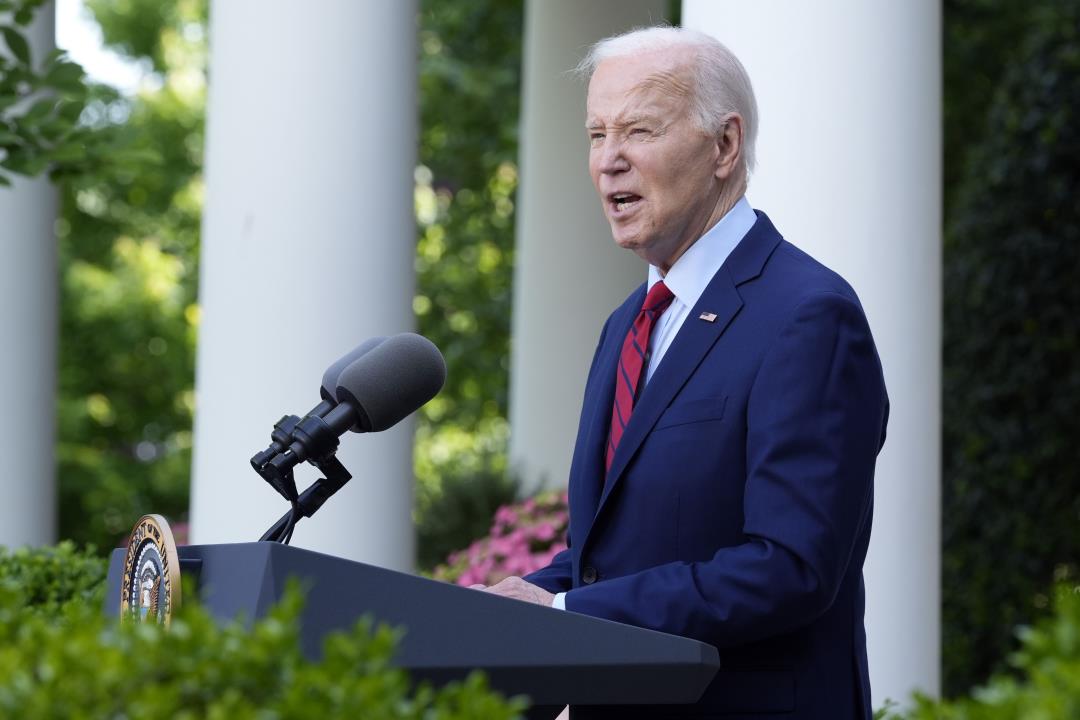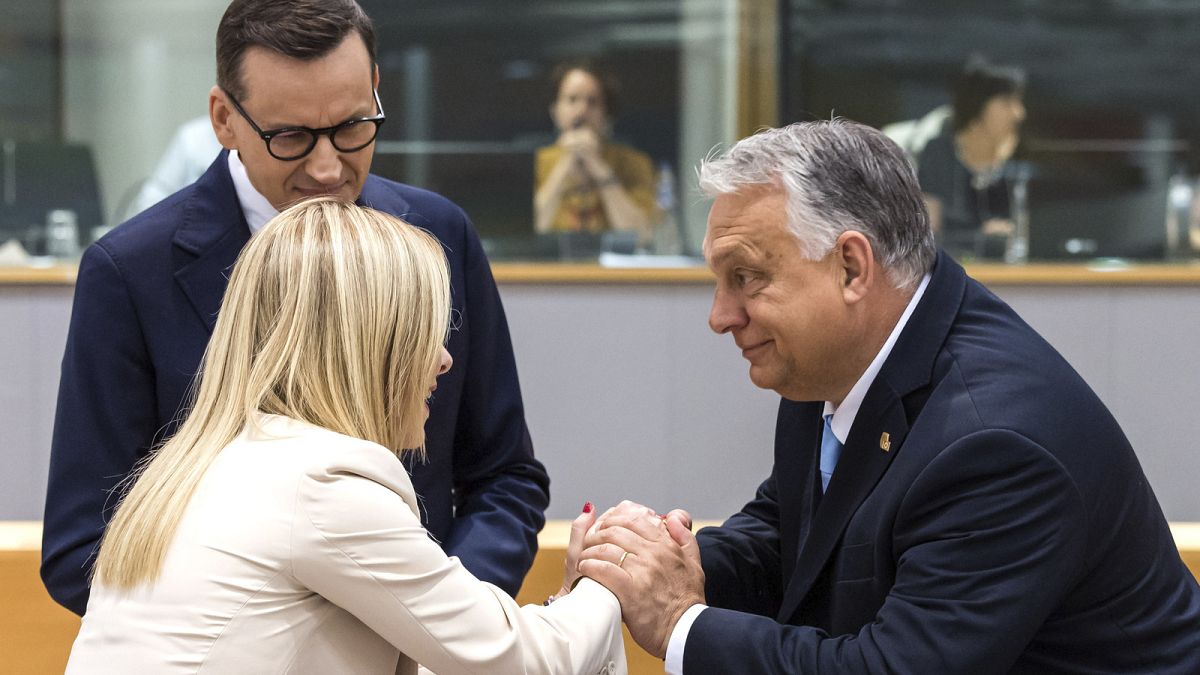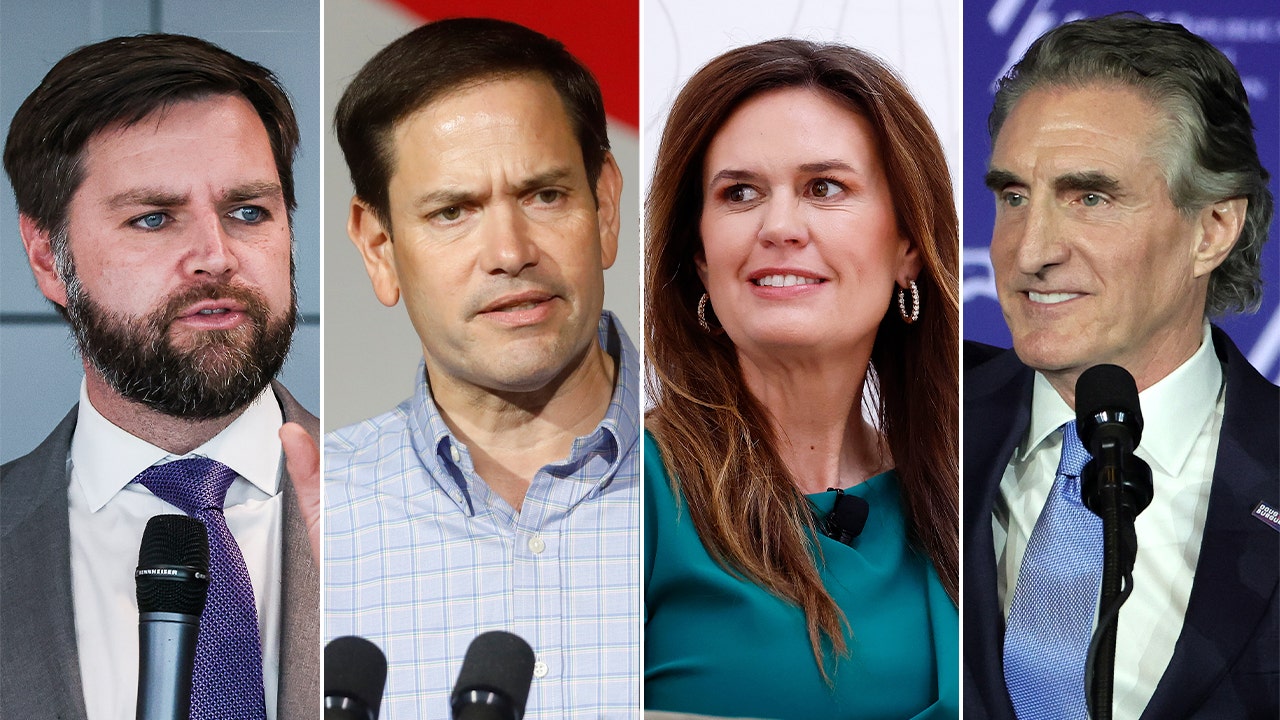World
Von der Leyen tours chips hub but stays mum about Chinese restrictions
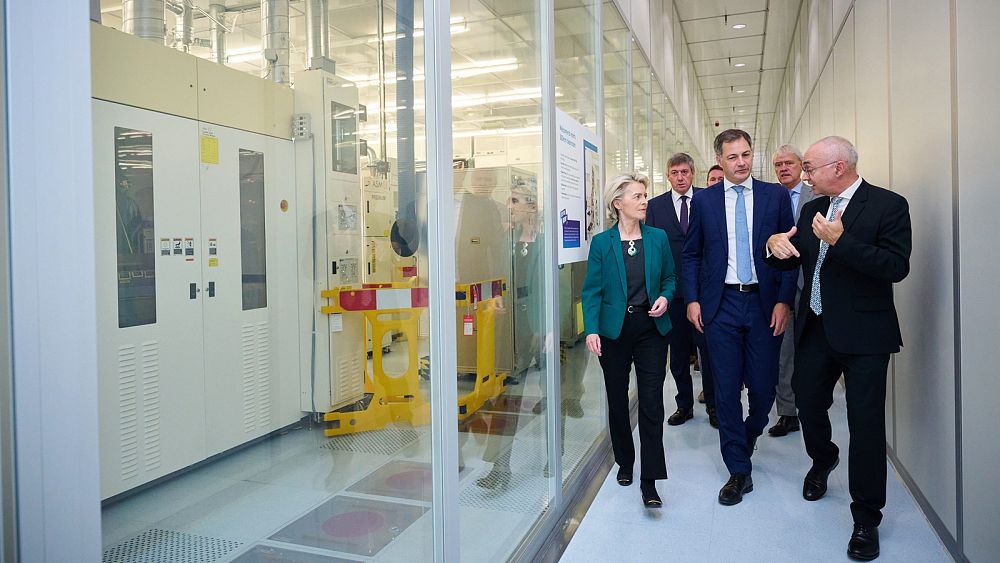
Ursula von der Leyen visited on Friday the Interuniversity Microelectronics Centre (IMEC), based in Leuven, Belgium.
The European Commission president’s tour is meant to promote the European Chips Act, a new legislative initiative to drastically ramp up the bloc’s domestic production of semiconductors and reach 20% of the global market share by 2030.
Due to enter into force in the autumn, the act aims to mobilise more than €43 billion in investments before the end of the decade, the majority of which is expected to come from the private sector.
“Chips are essential for our green and digital transitions, and for our economies. Our economy would not function without chips,” von der Leyen said on Friday, speaking next to Belgian Prime Minister Alexander De Croo.
The president’s visit comes at an uncomfortable time for the bloc: just four days ago, China took Brussels by surprise when it announced trade restrictions on the exports of gallium and germanium, two rare-earth metals used in the manufacturing of semiconductors, micro-electronics and smartphones, as well as solar panels.
China is estimated to control 80% of the global production of gallium and 60% of that of germanium. The European Commission has identified both materials as having a “strategic” and “critical” importance for the EU’s green and digital transition.
According to the Chinese Ministry of Commerce, national companies that intend to export items containing gallium and germanium will need to first obtain an export licence, which the central government could decline to issue, effectively enforcing a ban.
The rules will apply as of 1 August, the ministry said.
Von der Leyen, who did not take any questions from the press during her visit to IMEC, avoided the topic altogether during her public remarks and instead spoke about the “geopolitical context” in a more general manner.
“We need to reduce our dependency on too few suppliers from East Asia. And we actively have to de-risk our supply chains for chips – it is vital,” the Commission chief said, referring to the strategy she has pioneered.
“We need to promote the design, testing and production here in Europe. For that, the Chips Act is the game changer.”
Earlier this week, the European Commission said it was analysing the Chinese decision, its economic repercussions and its possible incompatibility with the standards set by World Trade Organization (WTO).
The executive cast doubt on Beijing’s reasoning to justify the move, which was based on the protection of “national security interests,” an ill-defined concept that countries around the world frequently use to defend a variety of policy changes.
“The Commission is concerned that these export restrictions are unrelated to the need to protect the global peace and also the stability and the implementation of China’s non-proliferation obligations arising from international treaties,” a spokesperson said on Tuesday.
Resorting to “national security interests” reinforced the impression the trade bans were imposed on a tit-for-tat basis, as they were announced mere days after the Netherlands had expanded its own restrictions on the sale of advanced microchip technology bound to the Chinese market.
It also suggests Beijing is becoming openly willing to exploit its market dominance over rare earths in order to retaliate against the technology curbs that Western allies are introducing at an increasing pace.
But raw materials cannot be equated with high-tech goods, says Jacob Kirkegaard, a senior fellow at German Marshall Fund, because the latter are much more sophisticated and harder to replace than the former.
“The reason that China is so dominant in these particular minerals is not because they’re only found in China, but because China has always heavily subsidised their extraction and production. So they’ve simply undercut the rest of the market,” Kirkegaard told Euronews.
“So what will happen is that prices will go up, but then supply will come online, elsewhere, and then, probably, the prices will go down again,” he added. “It’s clearly a political statement from China, but it’s also a short-sighted one because it will cost them market share in the medium term.”

World
‘SNL’ Cold Open Riffs on Trump Trial and His VP Picks

The 49th season finale of “Saturday Night Live” opened with James Austin Johnson as Donald Trump speaking at the barricades of a Manhattan courthouse, in a nod to Trump’s ongoing legal woes amid his presidential campaign.
During the sketch, Johnson as Trump spoke about his “weird and depressing” state at the courthouse, saying, “I don’t like being in court because they say very mean things about me as I’m trying to sleep.” (It was reported that Trump fell asleep in court during proceedings.) He goes on to say, “Now that my defense is supposed to begin on Monday, I would love to testify; I’m not afraid to testify at all, I’m just not going to out of fear.”
He continues to say how he doesn’t want to go back to the White House, “But it appears people want to send me there.” Johnson’s Trump pokes fun at Trump’s rigged election claims, too. “For me, it’s much better for me to not win and say it was rigged.”
Making fun of Trump’s sexist comments about women (and how he once said Heidi Klum is “no longer a 10”), Johnson, as Trump says of a juror at his trial, “They call her juror 9, but to me, she’s like a six, baby.”
Johnson’s Trump then introduced three of his potential VP candidates. “We love to say ‘VP’, like ‘Veep’ with Elaine from ‘Seinfeld.’ She can’t dance!” He says he won’t announce his VP just yet. “In many ways, it will be determined by the winner of the Jake Paul-Mike Tyson fight.” Trump says he’s invited a few people from “my short bus––I mean my shortlist.”
He brings out South Carolina Governor Tim Scott (played by Devon Walker). “I’m here to help Trump win the Black vote,” he says. Trump adds, “I’m more popular than you among the Blacks, which is really saying something.” Walker, as Scott says, “Black people have called my support humiliating, but trust me, I am my own man!”
Trump then brings out South Dakota Governor Kristi Noem (played by Heidi Gardner), wearing a red MAGA hat, holding a stuffed dog, and pointing a fake gun at the dog (a reference to her shooting a dog). “She shot a dog, which you really can’t do…but on the other hand, she shot a dog, which is pretty awesome.” Gardner, as Noem chimes in and says, “I kill goats, too!”
Finally, he wheels out his final VP pick, “The late great Hannibal Lecter!” Trump says, as Mikey Day as Hannibal Lecter is wheeled out in an orange jumpsuit and wearing the famous mask. “I think he’d really scare everybody at the border. “Get him out of here, he’s giving me Pence vibes,” says Trump, as Hannibal Lecter is then wheeled away.
Trump says it’s going to be “the summer of Trump. You’re gonna get that Trump espresso,” he sings in a reference to a Sabrina Carpenter song. Johnson, as Trump says he’ll be selling more Trump Bibles as well, along with a “Trump Torah.”
Trump finishes the cold open shouting, “In the words of my mentor, the late great Hannibal Lecter, “Live from New York, it’s Saturday night!”
This week’s “SNL” host is actor Jake Gyllenhaal, and Sabrina Carpenter stars as the week’s musical guest.
Watch the sketch below:
World
Blue flash caught in night sky over Spain, Portugal lights up social media
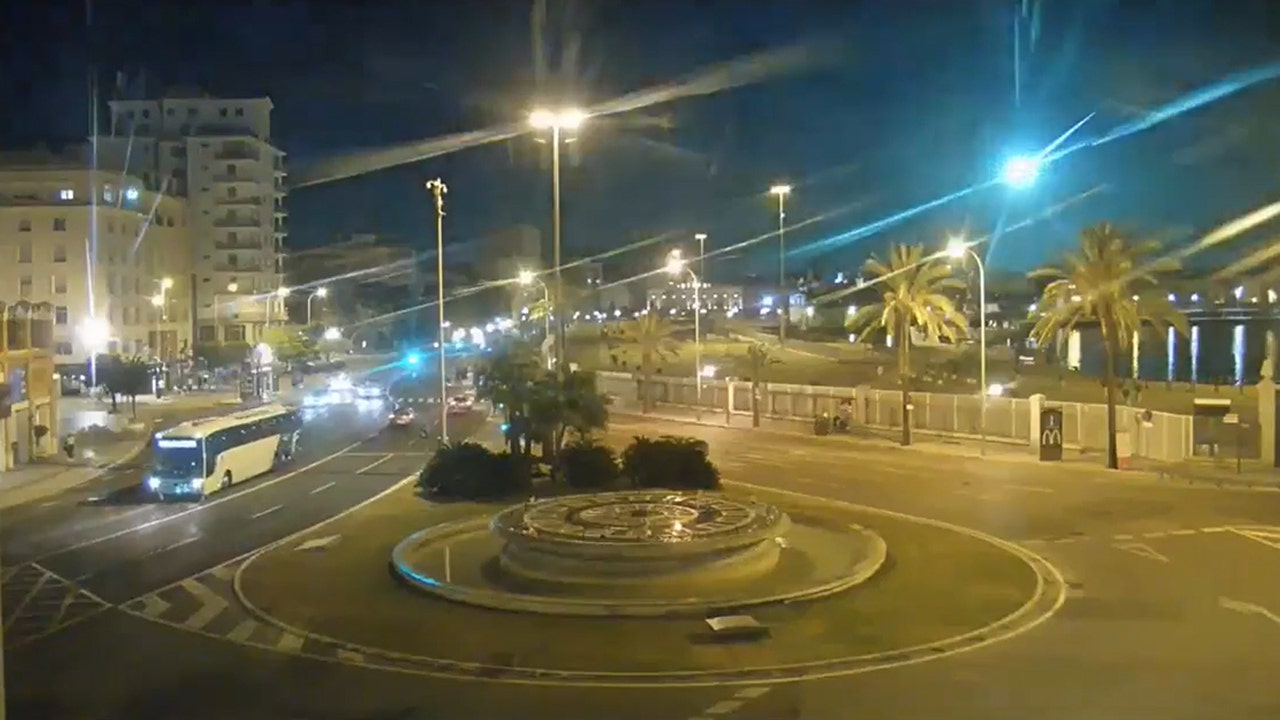
It’s a bird… it’s a plane… it’s a blue meteor? Fireball? Piece of a comet?
Whatever it was, it lit up the night sky for millions of people early Sunday morning in Spain and Portugal. Social media users took stunning pictures and videos for all to revel in the natural science phenomenon.
The spectacular sight crossed the night sky at 12:46 a.m., according to CCTV footage released by the mayor’s office in Cádiz.
The European Space Agency (ESA) Operations says the “blue meteor” everyone is referring to was actually “a small piece of a comet” that flew over the European countries at the speed of 45 kilometers a second, which is equivalent to almost 28 miles.
MERGER OF MASSIVE BLACK HOLES FROM EARLY UNIVERSE UNCOVERED BY WEBB TELESCOPE, SCIENTISTS SAY
It burned up over the Atlantic Ocean at an altitude of 60 kilometers, or more than 37 miles above the surface.
“The likelihood of any meteorites being found is very low,” ESA Operations tweeted after the agency’s Planetary Defence Office analyzed the size and trajectory of the object.
SCIENTISTS DISCOVER LARGE, ‘COTTON CANDY-LIKE’ PLANET WITH UNUSUALLY LOW DENSITY
The night sky in Cadiz, Spain, prior to the fireball’s appearance. (Ayuntamiento de Cadiz via Storyful)
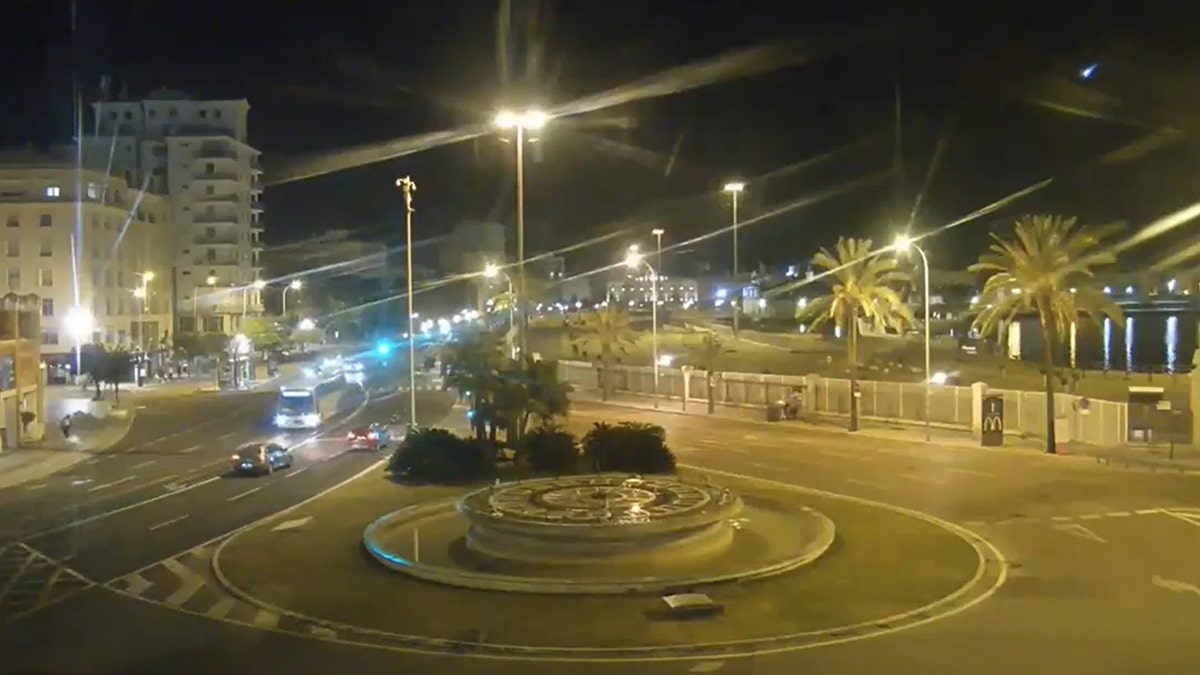
The moment the blue fireball first appeared on the camera rolling at the Cadiz mayor’s office. (Ayuntamiento de Cadiz via Storyful)
National Aeronautics and Space Administration explains the color was likely due to magnesium, and that “meteor color depends on whether the metal atom emissions or the air plasma emissions dominate.”
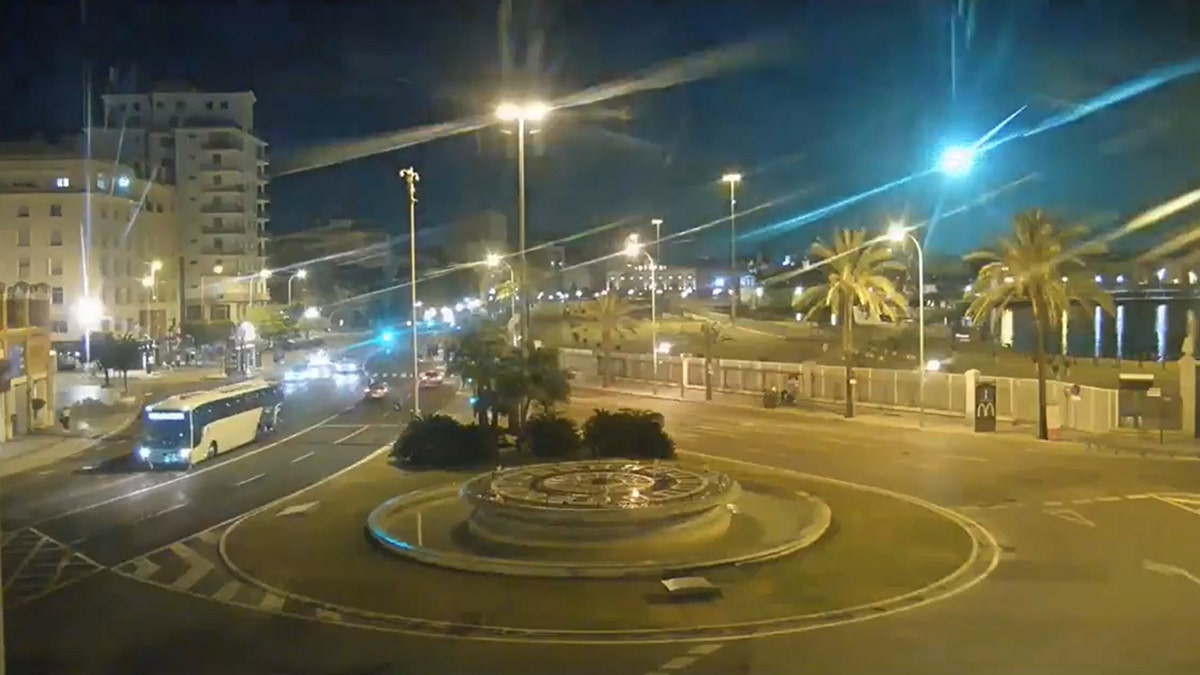
The blue fireball lit up Spain’s sky early in the morning May 19, 2024. (Ayuntamiento de Cadiz via Storyful)
“Short-period comets, also known as periodic comets, originate from a disk-shaped band of icy objects known as the Kuiper Belt beyond Neptune’s orbit, with gravitational interactions with the outer planets dragging these bodies inward, where they become active comets,” Space.com states.
Many on social media referred to what they witnessed as a “once in a lifetime sight,” according to news.com.au, with at least one joking, “That’s no meteor, that’s Optimus Prime.”
Fox News’ Mitch Picasso contributed to this report.
World
How is Azerbaijan involved with France and New Caledonia?
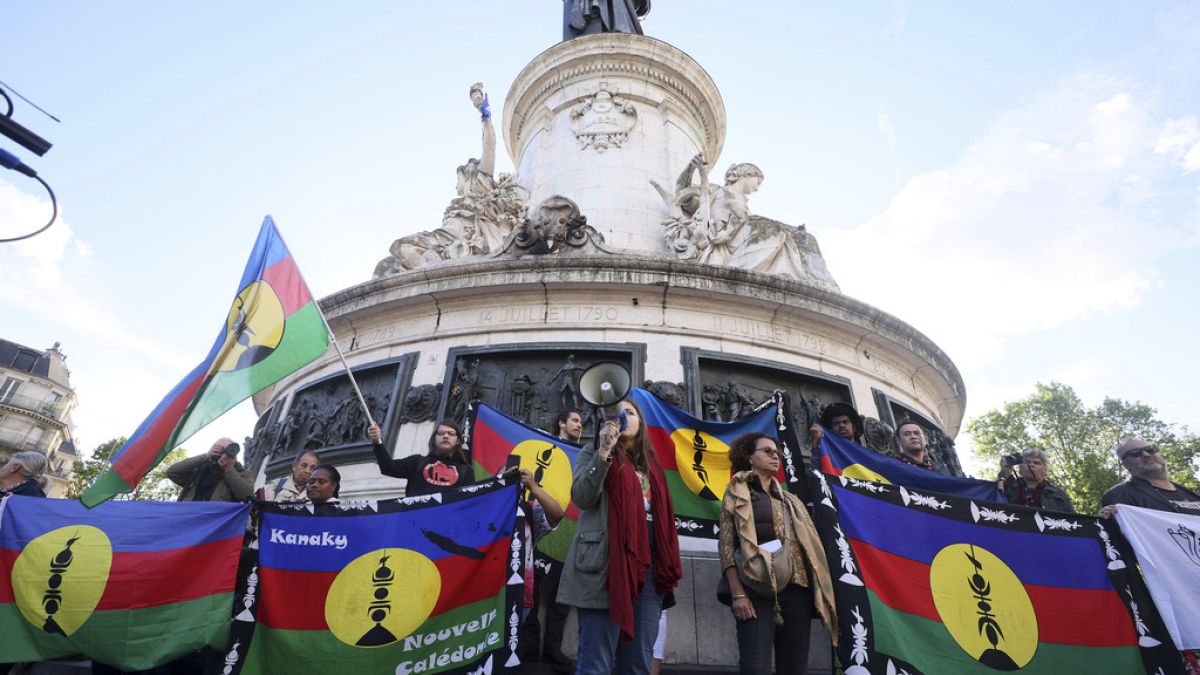
France has accused Azerbaijan of meddling in its Pacific territory, New Caledonia, by supporting independence movements and spreading disinformation, amid broader geopolitical tensions.
France has accused Azerbaijan of meddling in its Pacific archipelago territory of New Caledonia.
Despite the vast geographical and cultural distance between the Caspian state and the French Pacific territory, this claim is rooted in a complex web of historical, political, and diplomatic tensions.
The Crisis in New Caledonia
New Caledonia, located between Australia and Fiji, is a French territory with a history of striving for independence.
The recent unrest in New Caledonia was ignited by a new electoral law perceived by the indigenous Kanak population as discriminatory.
This law allows people who have lived in New Caledonia for at least ten years the right to vote in local elections, which pro-independence supporters argue will dilute the Kanak vote.
France’s Accusations
France’s Interior Minister, Gérald Darmanin, has publicly stated that Azerbaijan, along with China and Russia, is interfering in New Caledonia’s internal matters. “This isn’t a fantasy. It’s a reality,” Darmanin told the France 2 TV channel, emphasizing the seriousness of the allegations.
The French government points to the sudden appearance of Azerbaijani flags at Kanak independence protests and the backing of separatists by groups linked to Baku.
Azerbaijan has vehemently denied any involvement, calling the accusations baseless. “We completely reject the baseless accusations,” said Ayhan Hajizadeh, a spokesperson for Azerbaijan’s Foreign Ministry. “We refute any connection between the leaders of the struggle for freedom in Caledonia and Azerbaijan.”
A significant element in this story is the Baku Initiative Group, established during a conference in July 2023 in Azerbaijan. This group, which includes participants from various French territories seeking independence, aims to support anti-colonial movements against France.
The group has expressed solidarity with the Kanak people and condemned the recent electoral reforms in New Caledonia. “We stand in solidarity with our Kanak friends and support their fair struggle,” the Baku Initiative Group stated.
Why are France and Azerbaijan clashing diplomatically?
The tensions between France and Azerbaijan extend beyond New Caledonia. France is a traditional ally of Armenia, Azerbaijan’s historical rival, particularly regarding the contentious Nagorno-Karabakh region.
Following the 2020 war and a subsequent 2023 offensive by Azerbaijan to reclaim control of Nagorno-Karabakh, France has openly supported Armenia.
This support includes defence agreements and military equipment supplies, fuelling further animosity from Azerbaijan. Darmanin referred to Azerbaijan as a “dictatorship,” highlighting the deep-seated distrust.
France has also accused Azerbaijan of engaging in disinformation campaigns to destabilise its territories. Pro-Azerbaijani social media accounts have been linked to the spread of misleading content about the French police’s actions in New Caledonia.
A French government source mentioned a “pretty massive campaign, with around 4,000 posts generated by (these) accounts,” aimed at inciting violence and mistrust.
This follows France recalling its ambassador to Azerbaijan in April, with President Macron expressing regret for Azerbaijan’s actions, along with his hope that the Azerbaijanis would clarify their intentions.
Why New Caledonia?
While Azerbaijan’s direct interest in New Caledonia might seem far-fetched, it fits into a broader strategy of challenging the French colonial legacy and supporting separatist movements.
By aligning with anti-colonial sentiments, Azerbaijan aims to position itself as a champion of liberation movements, simultaneously discrediting France on the international stage.
This effort is seen as part of a broader geopolitical manoeuvering, including Azerbaijan’s efforts to tarnish France’s image, as noted by its alleged disinformation campaign against France’s capability to host the Olympic Games.
The heightened tensions have had further repercussions. The French Sports Minister cancelled the Olympic flame’s journey through New Caledonia, for security reasons, but also an action that reflects the severity of the unrest and the accusations of foreign interference.
The involvement of Azerbaijan in New Caledonia’s unrest is a multifaceted issue rooted in broader geopolitical rivalries and historical grievances.
For Azerbaijan, supporting independence movements in French territories is a way to strike back at France for its support of Armenia and to bolster its own international standing.
For France, these actions represent a direct challenge to its sovereignty and stability in its overseas territories, prompting strong accusations and heightened tensions between Paris and Baku.
-

 World1 week ago
World1 week agoUkraine’s Zelenskyy fires head of state guard over assassination plot
-

 World1 week ago
World1 week agoIndia Lok Sabha election 2024 Phase 4: Who votes and what’s at stake?
-

 Politics1 week ago
Politics1 week agoFox News Politics: No calm after the Stormy
-

 News1 week ago
News1 week agoSkeletal remains found almost 40 years ago identified as woman who disappeared in 1968
-

 Politics1 week ago
Politics1 week agoUS Border Patrol agents come under fire in 'use of force' while working southern border
-

 Politics1 week ago
Politics1 week agoTales from the trail: The blue states Trump eyes to turn red in November
-

 World1 week ago
World1 week agoBorrell: Spain, Ireland and others could recognise Palestine on 21 May
-

 World1 week ago
World1 week agoCatalans vote in crucial regional election for the separatist movement


